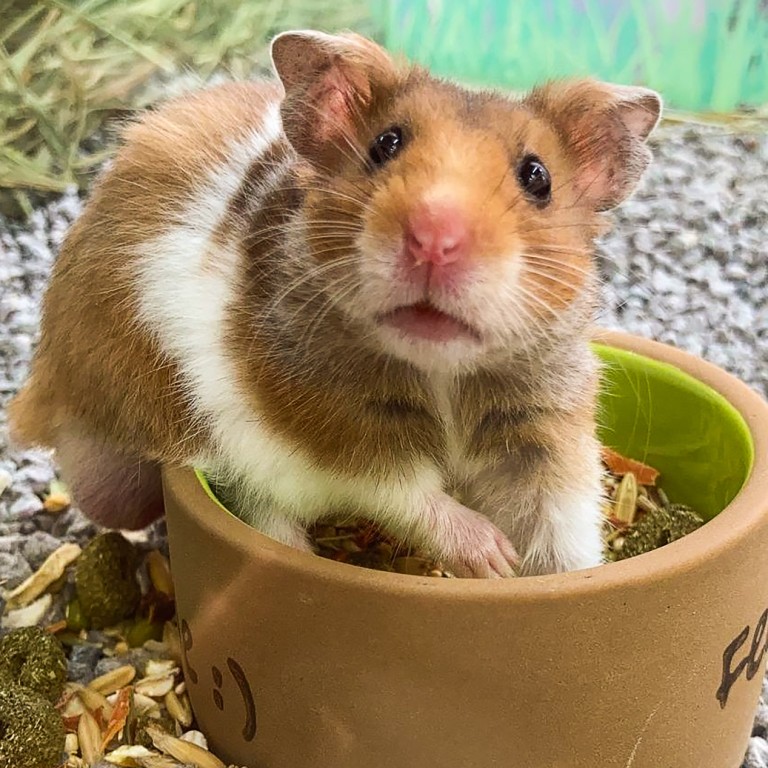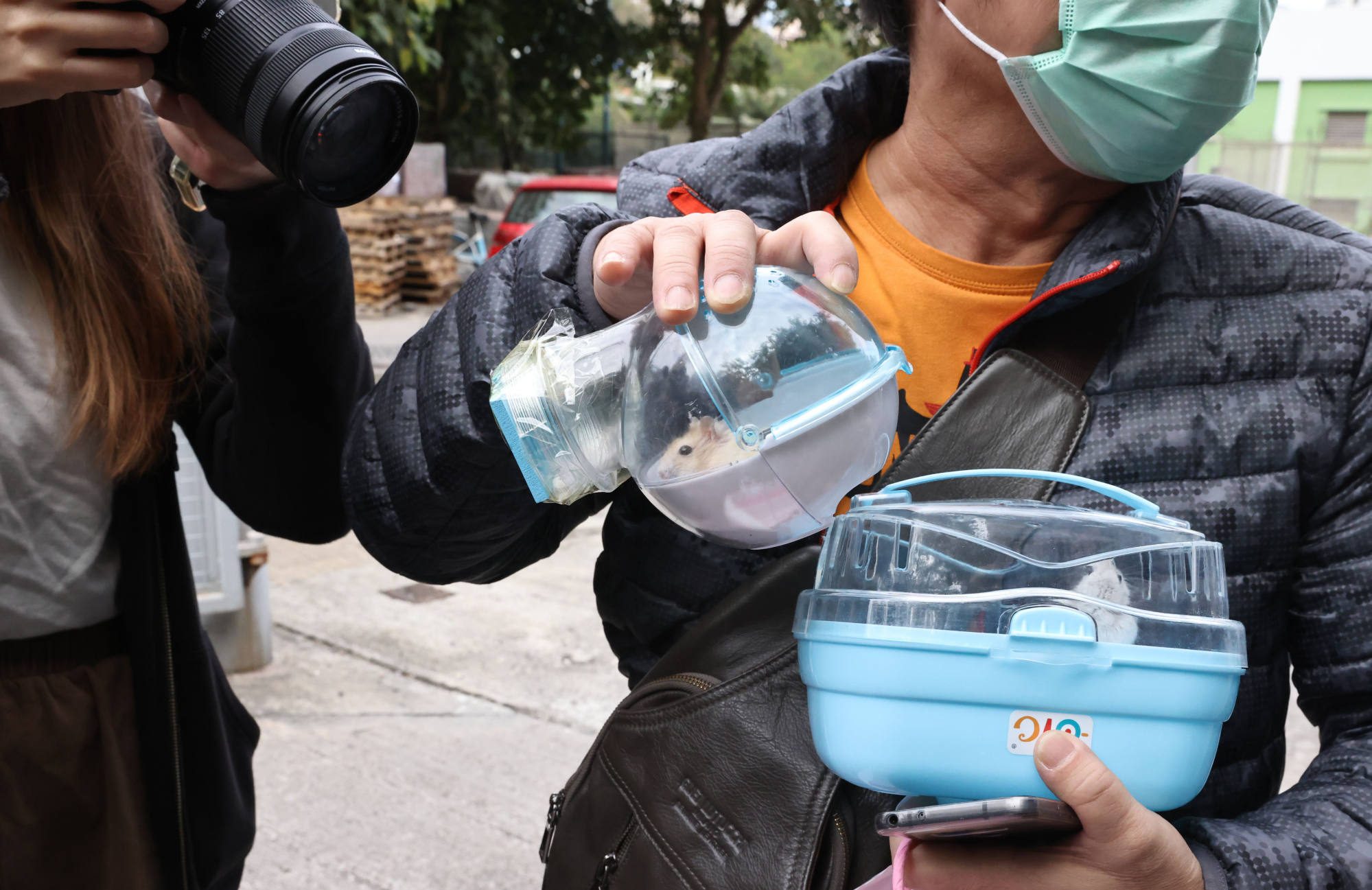
Hong Kong study confirms world’s first known hamster-to-human coronavirus transmissions
- The study, run as a preprint by The Lancet, determined there were two separate hamster-to-human transmissions, and that the pets contracted Covid-19 before arriving in the city
- Suspicions of hamster-to-human transmissions had prompted a massive cull of the rodents, sparking an outcry from animal lovers
The study, which has not been peer-reviewed, and was run as a preprint by the medical journal The Lancet on Saturday, determined that there were two separate hamster-to-human transmissions involving the Delta variant, and that the pets had contracted Covid-19 before being imported into the city.
Researchers found that the hamsters were infected on or around November 21 last year, about a month before they arrived in Hong Kong.
“Importation of infected hamsters was the most likely source of virus infection,” the study concluded.
Hong Kong hamster cull: owners start handing over pets to officials
The study was conducted by a team of medical scientists with the University of Hong Kong after the government and health experts announced the unprecedented suspected hamster-to-human transmissions at the Little Boss pet shop in Causeway Bay about 10 days ago.
On January 16, a Little Boss employee was found to be infected with the highly contagious Delta variant, and hamsters at the shop and its warehouse in Tai Po were found to be carrying the coronavirus.
The discovery triggered the announcement of a cull of some 2,000 hamsters imported to the city after December 22, sparking an outcry from animal lovers. The imports were mainly from the Netherlands.
The initial infection, together with others linked to two pet shops in Mong Kok and Tai Po, led to subsequent human-to-human transmissions, with the resulting cluster growing to about 40 cases.
Researchers took viral swabs and blood samples from animals at one of the pet shops and its warehouse and conducted a full genome sequencing analysis.

They found that more than half of 16 individually screened Syrian hamsters from the pet shop and seven of 12 from the warehouse were positive for Covid-19 in PCR or serological tests.
All were found to be carrying the Delta variant, which had not been circulating locally for months prior to the outbreak. “These sequences are highly similar, but distinct,” the study said.
Phylogenetic dating of the viral genomes obtained from the hamsters suggested they were infected around November 21.
However, none of the 77 dwarf hamsters, 246 rabbits, 66 Guinea pigs, 116 chinchillas and two mice that were also tested were found to be infected.
“Pet hamsters can be naturally infected in real-life settings,” the study said. “The virus can circulate within hamsters and lead to human infections.”
Let them live: vets cite Hong Kong study in call for hamsters to be quarantined
Respiratory disease specialist Dr Leung Chi-chiu said the findings highlighted the need for importers and authorities to review the way hamsters were imported and kept at a warehouse.
Leung said the hamsters were typically transported in batches of 1,000 and kept in a compact warehouse, which fuelled risks of large-scale, continuous infection even though the rodents themselves did not transmit coronavirus easily.
“There are chances hamsters were infected before getting on a flight, or during the journey, and subsequently the coronavirus was transmitted to the environment of the warehouse and then spread to people,” he said.
He said people who kept hamsters should not hastily dump them without finding out the pets’ test results.

